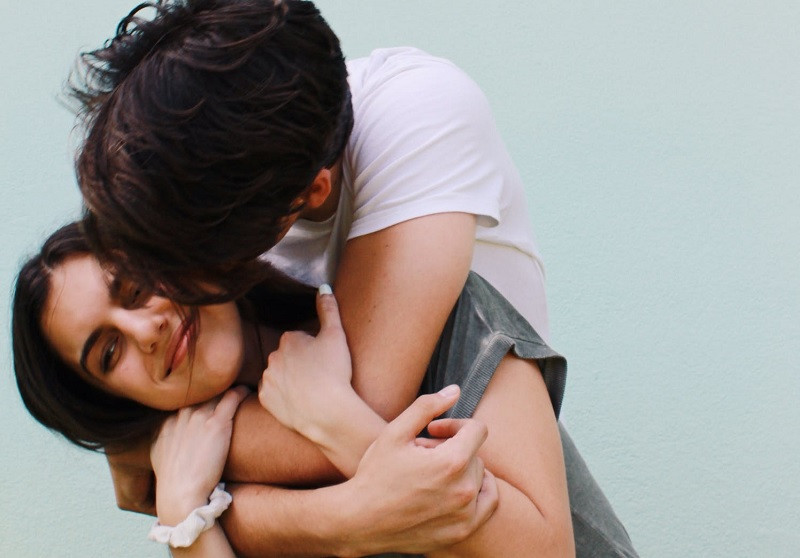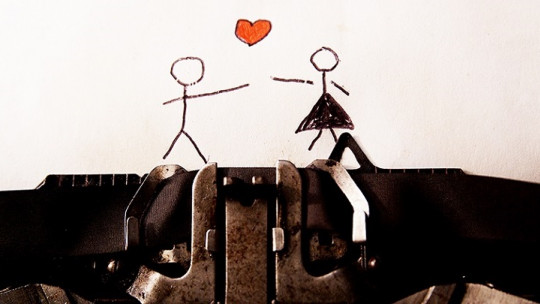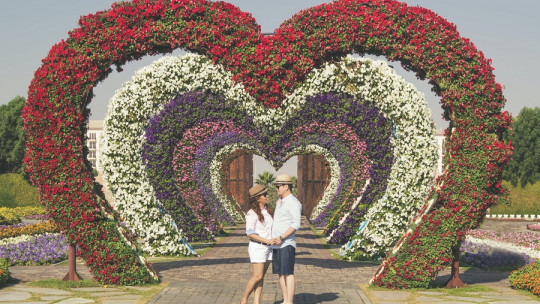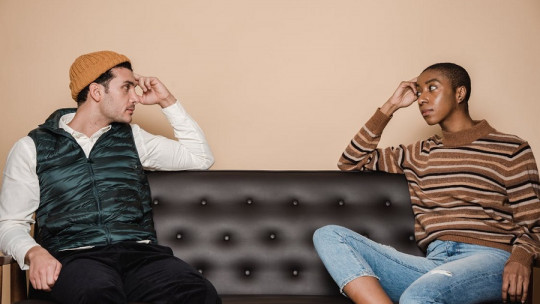
When we fall in love our body experiences many sensations. Many people lose their hunger due to this emotion because the stomach, invaded by metaphorical butterflies, is not up to much jogging.
We say that we have fallen in love when we can’t stop thinking about someone, thinking about their many good things and ignoring or downplaying their flaws. We want him or her to love us, we cannot live without him or her.
Describing an emotion in a few lines is complicated, and even more so if we take into account that there are many misconceptions about what it means to fall in love. Below we will go into a little more detail about what are the characteristics of falling in love explaining how this psychological phenomenon linked to love affects us and what biochemical processes occur in our brain when it appears.
What is falling in love?
It is common that some emotional and psychological states are often confused, this being the case of love and falling in love. These two emotions are undoubtedly very similar, but they are not the same.
First of all, we can say that love appears when you know a person deeply, when you love another person and accept their good and bad things. Instead, We can consider falling in love as the initial state, the one in which attraction appears, the desire to know the other person in greater depth
On the other hand, love is a feeling that a person feels towards another person that they know in an intimate and personal way. To love someone in a loving sense, it is necessary to have spent a lot of time with that person, to have shared experiences together and to know all the good and bad things about the other person, accepting them to the fullest.

Main characteristics of falling in love
Falling in love is the moment prior to establishing a love relationship. The two people do not yet know each other completely. Only one part is valued, the good and beautiful part, the most attractive part both physically and psychologically. As time goes by, these intense emotions will fade, leaving room for equally pleasant but more moderate emotions that are associated with a love relationship.
Taking the above into account, let’s see a brief summary of the characteristics of falling in love.
1. Desire for physical contact
There is a strong desire for physical contact and intimacy with the person with whom one has fallen in love whether in the form of a hug, kisses, caresses and/or sexual relations.
2. Desire for reciprocity
By desire for reciprocity we refer to the longing for the other individual to also be in love with us
3. Fear of rejection
When you fall in love with someone you cannot conceive the idea that the other does not feel the same. There is a fear of being rejected by the other person.
4. Lack of concentration
When you fall in love it is normal to lose concentration, having frequent carelessness and confusion in their daily tasks
5. Frequent thoughts about the other person
It is inevitable that you are constantly thinking about the other person you are in love with. “
6. Nerves and anxiety
When you are close to the person you are in love with signs of anxiety and nervousness are felt, such as racing heart, stuttering, and inability to speak clearly how nervous you are.
- You may be interested: “What is anxiety: how to recognize it and what to do”
7. Interest in the other person’s tastes
Attraction towards that special person makes us interested in what their tastes are, trying to imitate them in order to make him or her also feel interested in us.
8. Idealization of the other person
During the first moments of being in love with someone, you are only able to see the positive in the other person, that is, you idealize the person you feel attracted to. There is a tendency to ignore the negative aspects of the other person.
- You may be interested: “Platonic love: a guide to loving in modern times”
How long does this emotional state last?
Falling in love is a phase of a lot of lust, passion and unbridled feelings It is only possible when you are immersed in a situation of uncertainty and a certain obsession with another person, without stopping thinking about him or her. It is this state of uncertainty that makes the emergence and maintenance of passion possible.
The union of love between two people is a dynamic process, constantly changing and that, over time, takes different forms. The type and durability of the relationship will depend on various aspects, such as personality traits, current circumstances, and the evolution of the relationship.
There are many couples who They fall into the belief that if they are not in love, that means they don’t love each other As we have mentioned, falling in love is the emotion typical of the first stages of the relationship and it is a matter of time before it declines, going from passion to affection, mutual respect and experiencing very good moments and others that are not so good.
There are people who need those intense emotions typical of falling in love and who, when their relationship no longer offers them, have doubts about continuing with him or her. They are addicted to the shot of serotonin that the brain releases during the early stages of dating someone
Falling in love has an expiration date. There is some debate about when you stop being in love, but there is no doubt that there will be a time when you will stop feeling the intense emotions you had at the beginning, and it is totally normal. There are those who say that this phase should last between 2 or 3 years, at most 4, while there are those who are more pessimistic but based on scientific evidence which is that falling in love lasts between 6 and 8 months.
From falling in love you can reach a stable relationship Passion takes a secondary role and gives up its place of importance to emotional exchange and reciprocity, in addition to feeling concerned about whether the other person is well and wanting to take care of them when they are going through a bad patch. This is where many couples have problems, feel disappointment and doubt about whether it is profitable for them to continue with the relationship. These difficulties can be overcome by going to couples therapy, acquiring learning to improve the relationship, although sometimes the only solution is the breakup of the couple.
- You may be interested: “How to know when to go to couples therapy? 5 compelling reasons”
The biochemistry of love
Many things happen in our brain when we fall in love. Brain biochemistry is profoundly altered when we meet someone and he or she calls us “tino”. Initially, our brain secretes serotonin, known as the happiness hormone. Little by little, it adapts to this feeling of euphoria, similar to what drug addicts have when faced with their drug doses, and serotonin levels decrease.
With that, the initial infatuation fades until it disappears, because the brain gets used to the serotonin levels and is no longer as excited. It is then that the previously mentioned love of a couple would appear, the one in which there is no longer so much passion or lust but a relationship of mutual concern and acceptance of the good and bad of both lovers is established.
Serotonin is not the only one involved in falling in love. During this phase, highly intense sensations also appear that are associated with manifesting high levels of dopamine, testosterone and norepinephrine in the brain. All this brain chemistry would be responsible for making us feel euphoric, hyperactive and without the desire to eat during the first moments of falling in love.








